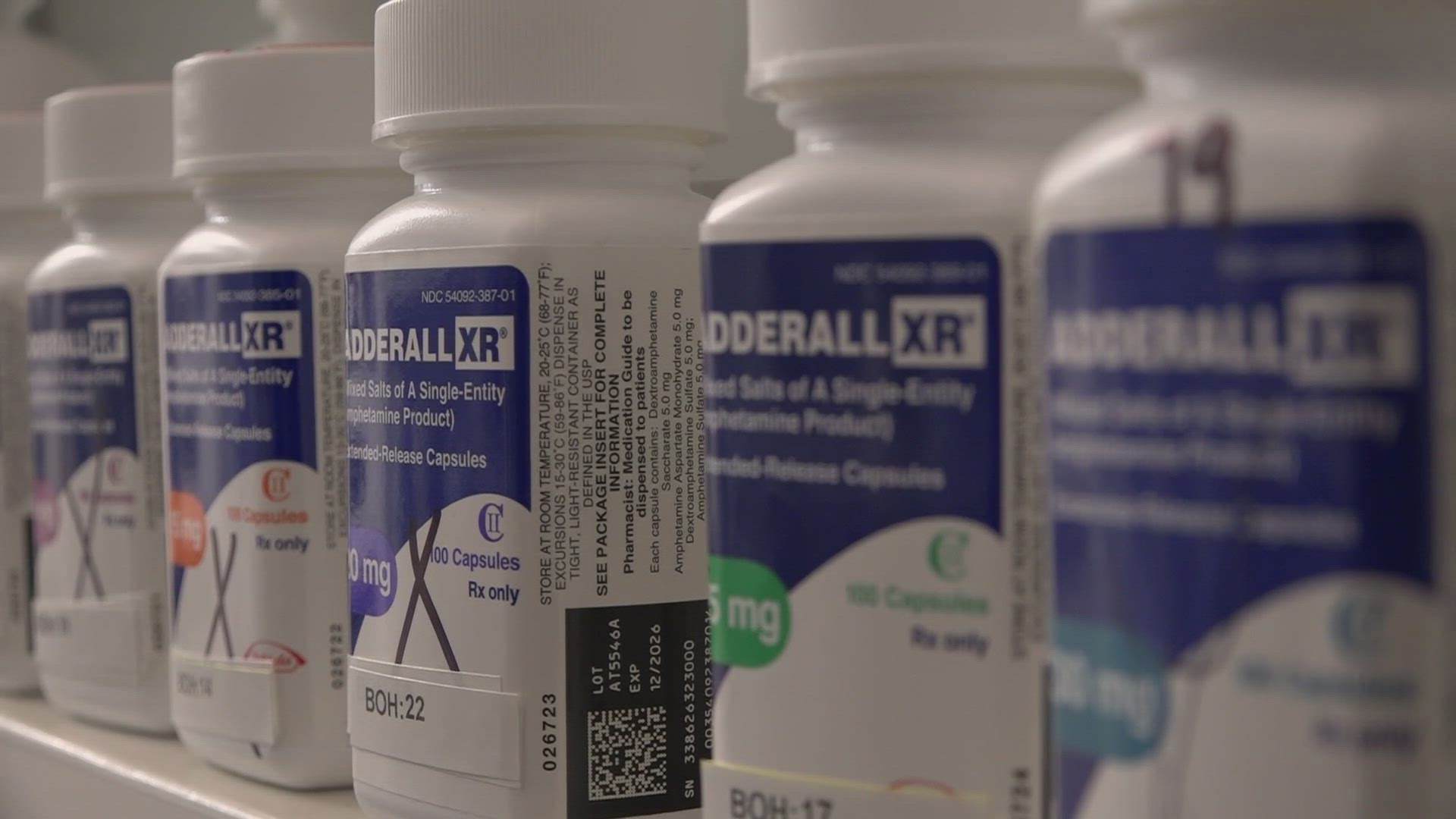STANDISH, Maine — Darci Petrov spent much of her days in recent weeks calling pharmacies in search of medication with little luck.
"Oh, I've cried a lot," she said. "I have gotten so overwhelmed by the whole process."
In the last year, both she and her son were diagnosed with Attention Deficit Hyperactivity Disorder (ADHD), amid an ongoing shortage of stimulant drugs.
Demand for the drugs has increased dramatically since 2022 and the Food and Drug Administration expects the use of the stimulants to climb another 3 percent this year.
Petrov said she and her son were recently forced to go weeks without the medication dexmethylphenidate, known popularly as Focalin. For him, it meant days struggling in school and behavior changes.
"One night he was having a particularly hard time, and he's just really struggling to kind of emotionally regulate. And he couldn't tell me why, but he said, 'Mama, sometimes my brain feels crazy,'" Petrov said. "When somebody says that what your child says, you just stop everything."
Chris Guido at Community Pharmacies in Gorham has been struggling to supply stimulants for his customers for the last year, and not just the name brands like Adderall.
"We get a lot of calls from, you know, worried parents," he said.
Guido said the shortages across the board are because most people are looking for generics covered by insurance and have shifted to other drugs when what they were initially prescribed is out of stock. It complicates the process for the customer and the pharmacy.
"For six months, it's been to the point where we just can't get stuff, you know, it's just not there," Guido said.
It is all part of a national issue that has been ongoing for the last two year, when the FDA declared a shortage of Adderall. Experts blamed the deficit on a drastic increase in demand fueled by the pandemic, but there were other factors at play, including supply chain issues and federal regulations on controlled substances.
Dr. Kasey Moss with Maine Behavioral Health said the demand piece of the equation is complicated, and not likely to go away as more people are being diagnosed. According to Moss, that is due in large part to a lack of mental health professionals, leaving pediatricians to make tough decisions.
"ADHD is both overdiagnosed and underdiagnosed. I think that there are people who are getting the diagnosis that their symptoms are better explained by something else," Moss said.
Still, she said there is hope. Moss has seen a decrease in the number of calls her office has received about a lack of stimulants and said the market is starting to catch up.
"It's just getting better," Moss said. "But ultimately, we have to be really diligent about making sure that our, you know, kiddos are being adequately assessed for ADHD."
As for Petrov, she and her son have access to the medication they need for now. She fears once they run out they will be forced to jump through hoops again to track it down.
It is why she has taken her concerns to social media and plans to call for change among lawmakers at the state and federal level.
"I am so incredibly exhausted and it feels so wrong that this is happening," she said.
Both Sens. Susan Collins', R-Maine, and Angus King's, I-Maine, offices said they are continuing to advocate for regulatory supply chain change, including bringing manufacturing of drugs back to the U.S.
Sen. Collins sponsored a bipartisan bill to require manufacturers notify the FDA when there is an increase in demand for a specific medication.
Often that notification comes too late, and the federal government does not have the power to force a company to manufacture more. That leaves parents like Petrov scrambling to get by.
"Something's got to be done," Petrov said.

